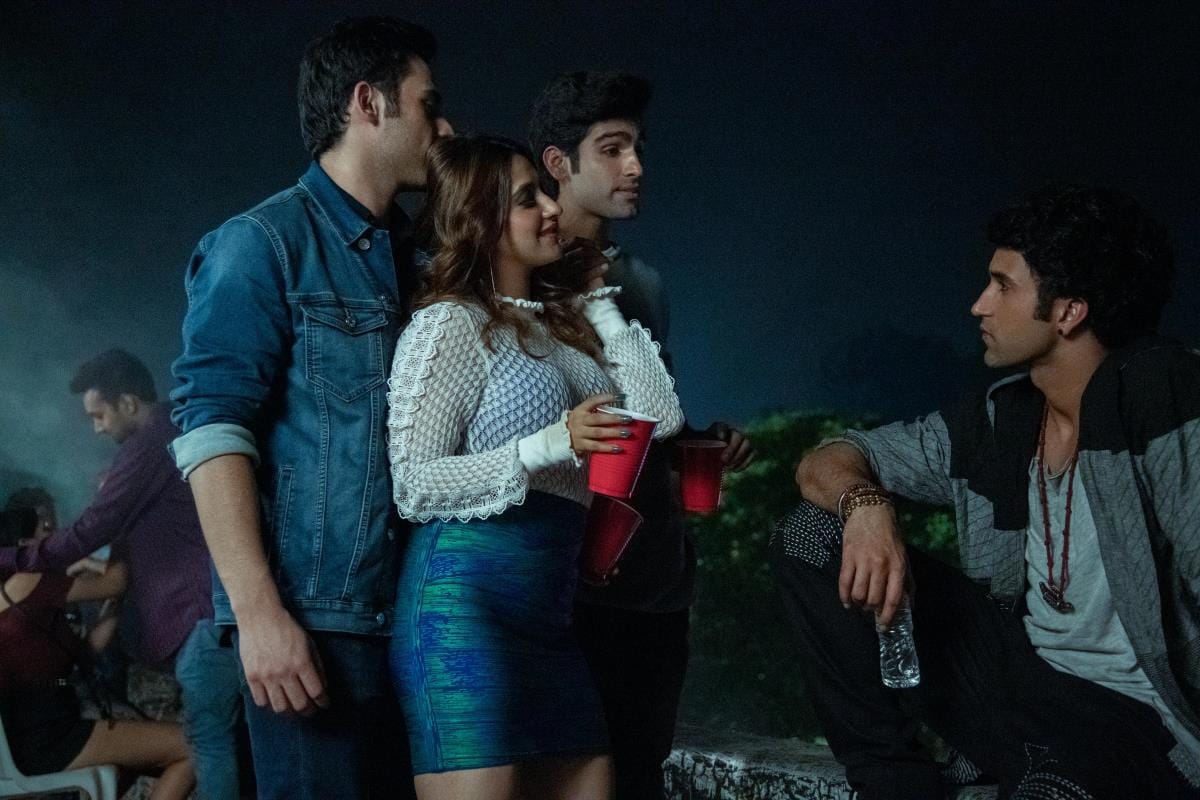The #MeToo movement has been an ambiguous one right from the beginning. ‘Ambiguous’ because the movement rose within the virtual world where victims of sexual harassment ‘informally’ discussed their experiences of trauma. And in such cases, sexual offences are made ambiguous in nature; it becomes difficult to prove whether a sexual act was consensual or rape, especially when the woman enters the man’s room on her will. Who can one believe in such situations? Particularly, when the man involved has an impeccable reputation and the woman involved doesn’t? The latest Netflix original Guilty set in a premier progressive college of Delhi, called St. Martin explores this forced ambiguity in many ways possible.
Guilty starts with an interview of a lawyer with one of the witnesses to an alleged sexual crime. The alleged person is Vijay Pratap Kumar (or popularly known as VJ), who is a lead singer in a band and a college heart throb. The person who has accused him of rape is Tanu Kumar who is wild and outspoken and has always been open about her crush on VJ. Friends of VJ consider her as an “easy rider” or a “fuck girl” or a “slut”. The crime alleged took place on the previous year’s Valentine’s night in the midst of Annual Day celebrations at the college. The lawyer, Danish is engaged by VJ’s family to file a defamation case against Tanu Kumar.
As an attempt to be a fair lawyer, Danish tries to get to the bottom of the things by interviewing the witnesses during that night. The interviewees include VJ’s close friends and his ‘intellectual’ girlfriend, Nanki Dutta, played by Kiara Advani. Nanki reads Kafka and Virginia Woolf and is a budding poet with clearly set academic plans. She is a supporter of the #MeToo movement till she is conflicted with her boyfriend’s part in the movement. While she is heart broken over her partner’s infidelity, she too is convinced that it was case of consensual sex and not rape.
Like Danish, the audience is also kept from knowing what actually happened that night. The story of Guilty is told in flashbacks in Rashomon style of narrative. While friends of VJ and Nanki believe the allegation is do with retribution of a woman who was scorned, the feminist activist men and women of St. Martin’s college are on Tanu Kumar’s side as they see not just a gender injustice but a differential power structure between VJ and Tanu. VJ is the son of a powerful politician, whereas Tanu Kumar is a student from Dhanbad who has been able to take an admission in this elite college through scholarship.
In an interesting exchange, Danish questions Nanki, whether she doesn’t think VJ is using his privilege to his advantage, while Nanki counter questions him, if he is sure Tanu is not using her lack of privilege to her advantage. The woman always becomes the center of questioning, especially by her own peers ad acquaintances. The perpetrator’s privilege and power is forcibly disregarded while the survivor is expected to continuously explain themselves by revisiting the trauma episode.
Also read: In Conversation With Ammu Joseph: The #MeToo In Media Moment
New comers Akansha Ranjan Kapoor as Tanu Kumar and Gurfateh Singh as VJ deliver their roles with conviction and ease. Kiera Advani does justice to the role of Nanki depicting her dilemma between ideological standing and trust in her loved one, quite effectively. It was particularly refreshing to see Kiara in this role after her portrayal as a woman with no agency in Kabir Singh. The writing by Kanika Dhillon is gripping, as it keeps the audience guessing about the position towards which the movie would tilt. There are shades of Pink as well as Section 375 and it gets difficult to assess where the main premise is leading. One of the problems of the movie is the lack of layered characterization and the unconvincing climax.
For me, Guilty threw a light on a very interesting thought, as to why the gender injustices are very different from other oppressive injustices, such as caste or religion. In the case of any other oppression, there is a unanimous feeling of solidarity and anger among the oppressed. But that’s not the case with gender discrimination, because most women have some man in their lives for whom they share unconditional love.
The #MeToo movement might not just make men feel insecure, but it also feeds on women’s insecurity for the men in their lives. They might think the movement could be misused against their loved ones. This, in spite of the fact that societal structures are heavily tiled towards men, and in cases of sexual assault, more questions are raised against the victim than the accused. And every woman who has raised her voice in this regard has had to pay a heavy price in terms of career opportunities and social stigma.
Also read: India And Its #MeToo Movement In 2020: Where Are We Now?
The #MeToo movement for many women was the last resort after the due processes and redressal mechanisms completely failed them. While the conflict on utilitarian vs deontological ethics is the largest debate surrounding the #MeToo movement, I hope Guilty, despite its not so effective execution, makes people who are critical of the movement ponder on why this movement was necessitated in the first place?
Featured Image Source: NDTV
About the author(s)
Gnanapriya is a Bangalore based Banker, a passionate feminist with a keen interest in philosophy, travel,conversations and forming new connections.




